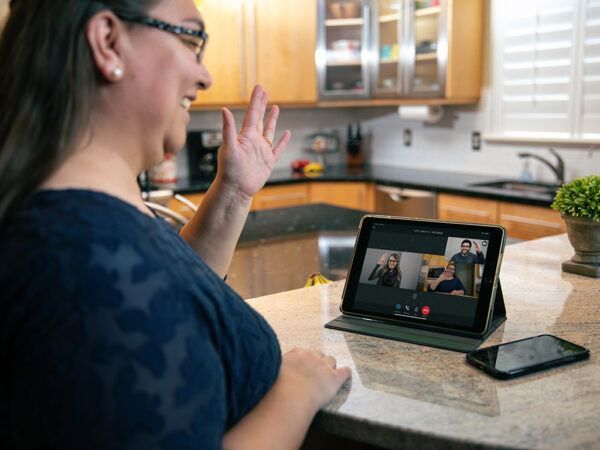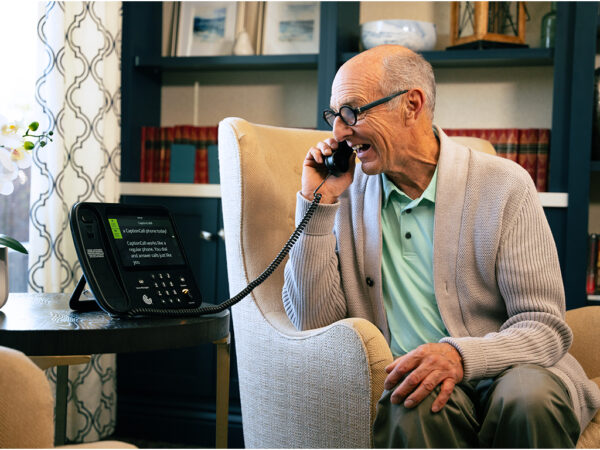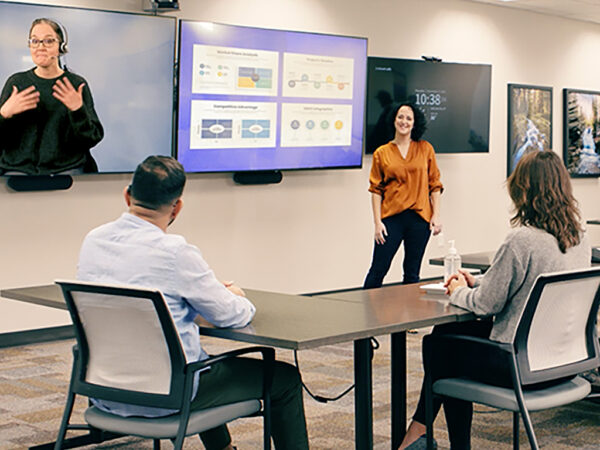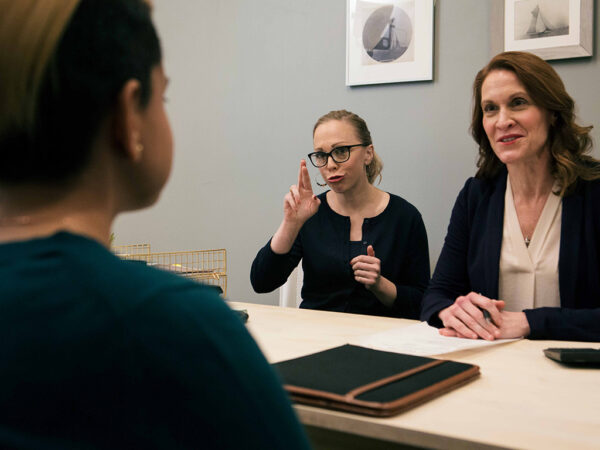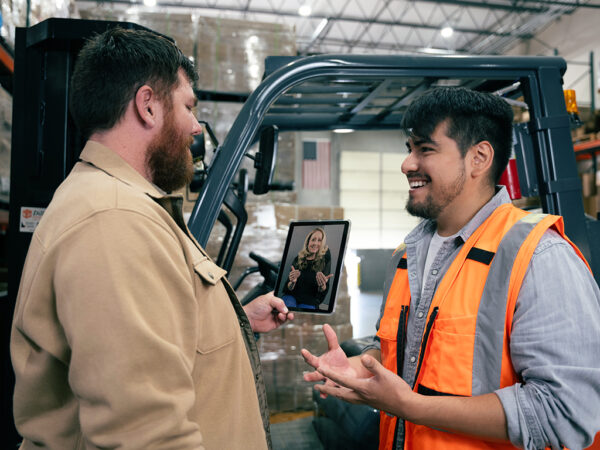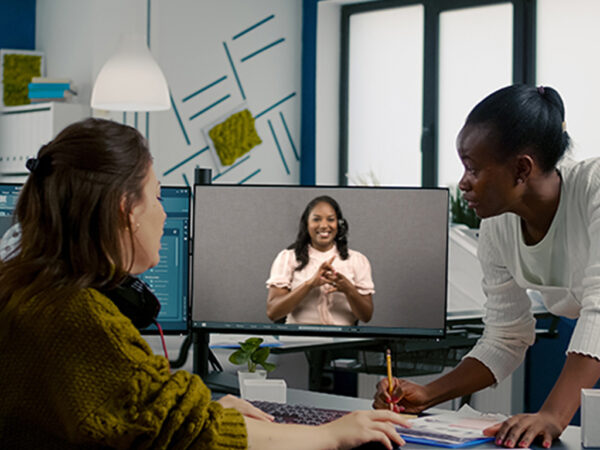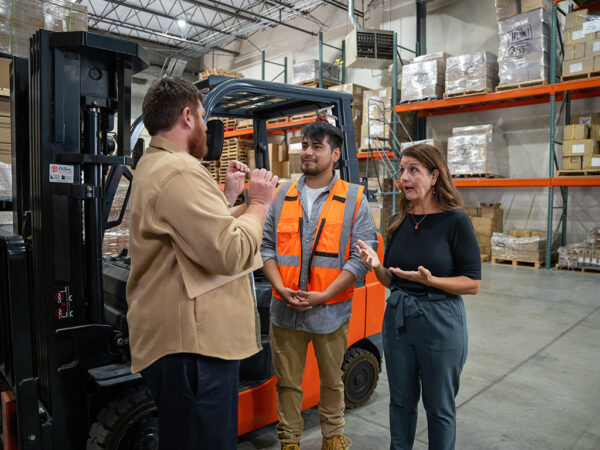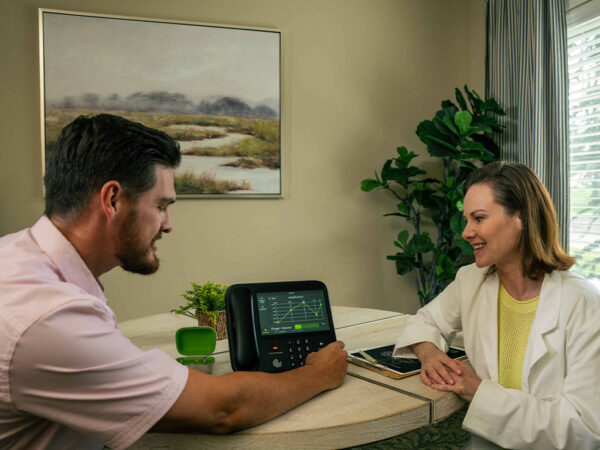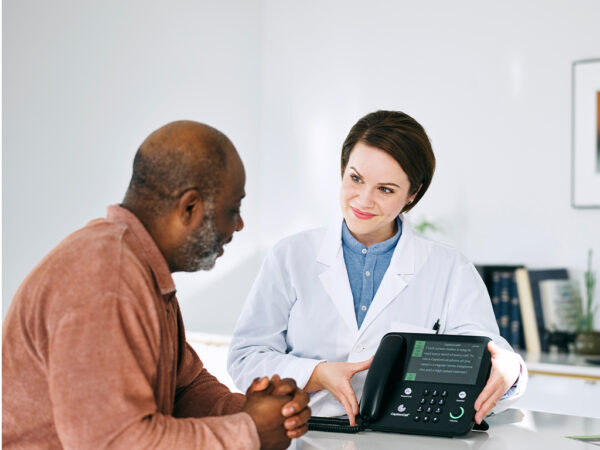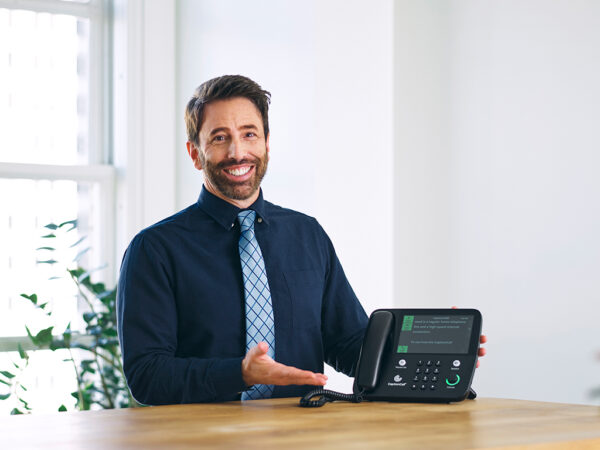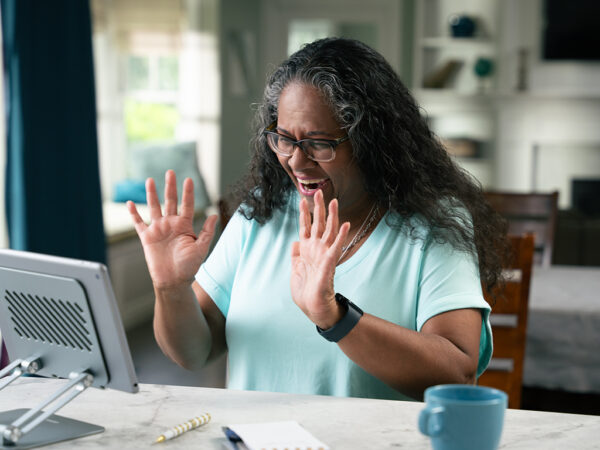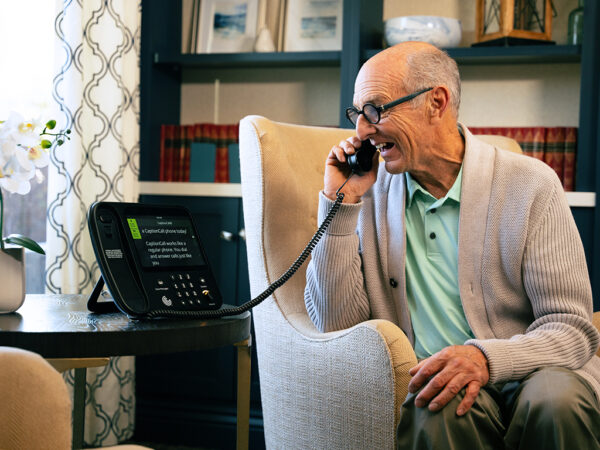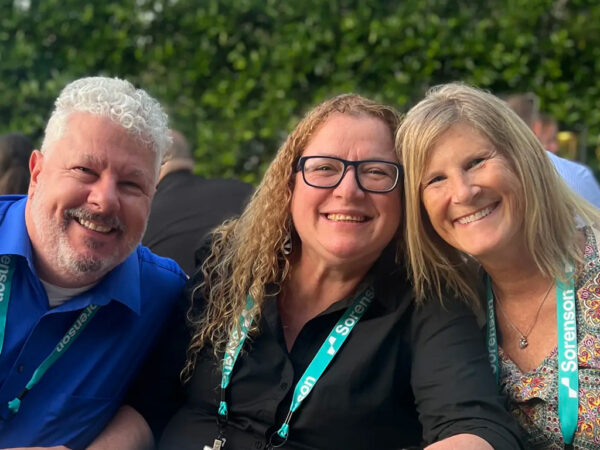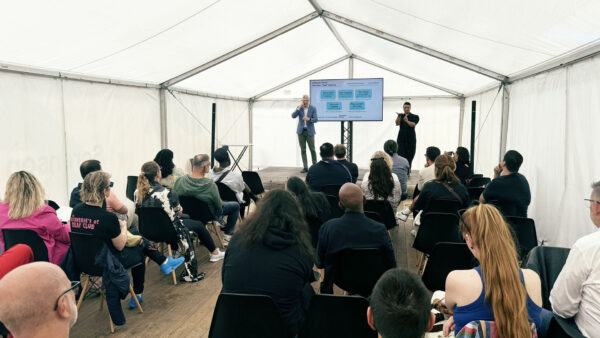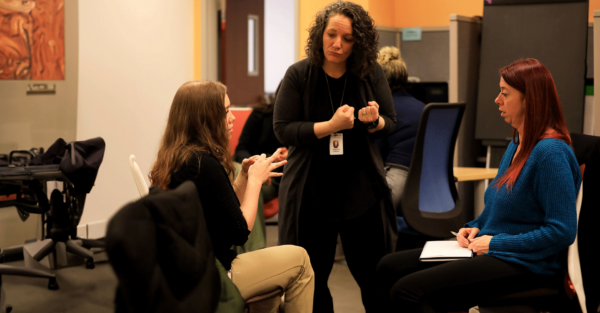Tech that Helps You Get Together

No Value (acf:field_669fe7fdb55ef)
Socializing is critical to your overall health and well-being. Unfortunately, when you have hearing loss, getting together can be a challenge; that’s part of why research links hearing loss to isolation and even dementia.
Luckily, there are plenty of tech tools available to help you stay social, in-person, over the phone, and even digitally.
In-person connection
In recent years, there’s been a lot of focus on how technology enables communication when we’re apart. However, there are many examples of technology designed to help with in-person connections as well.
Hearing aid-compatible venues and loops
Some public-use spaces like theaters, music venues, churches, community centers, and similar spaces are outfitted with hearing induction loops. These connect wirelessly to hearing aids, allowing the sound from a movie in the theater, for example, to transmit directly into your ears. By bypassing the air and ambient noise between the speakers and your hearing aid microphones, this delivers clearer sound that is easier to understand.
Personal sound amplification products (PSAPs)
For those without hearing aids, similar products, often called personal sound amplification products or PSAPs, can help in some situations. These PSAPs aren’t designed for profound hearing loss but can be helpful for people with mild hearing loss who just need to turn up the volume a little.
The most common PSAPs are just a microphone, receiver, and amplifier, often in a device that you wear around the neck. Their sole purpose is to amplify sounds, without much differentiation between frequencies. While they’re no substitute for hearing aids, they may still be helpful.
Over the phone connection
Captioned telephone services
If you’re here, you’re probably already aware of the concept of captioned phone calls. CaptionCall provides real-time captions of what the person on the other end of the phone line is saying at no cost to people whose hearing loss makes captions necessary to understand phone calls.
Amplified phones
In some cases, you might not need captions, just a little more volume. If this is the case, there are specialized phones that can amplify the overall volume to help you understand what is being said. Some models can even emphasize specific frequencies for an even more personalized experience.
There are many amplified phone options that do not include a captioning service. However, the CaptionCall home phone is equipped to do both. You can turn on the Volume Boost feature for louder sound, adjust the audio output to match your unique audiogram (the sound frequencies you have the hardest time hearing), or turn on captions if calls are still difficult to understand.
Some phones even come with visual ringer options. On the CaptionCall phone, you can set the screen to flash when the phone rings.
Smartphone Apps
There are a number of smartphone apps designed to help people with hearing loss. These include speech-to-text, sound therapy, sound amplification, and call captioning. The CaptionCall Mobile app lets you take captioning on the go by turning your smartphone into a caption screen.
Digital and online communication
Video calling with captions
It seems like everyone has gotten a lot more comfortable with video calling over the past few years. Tools like Zoom, Skype, or FaceTime are all great options for connecting with friends and family when you can’t get together physically. Many of these video calling apps even include captioning within the app. You can also connect Bluetooth headphones or hearing aids to your computer or smartphone if you’re having trouble understanding what they’re saying on the call.
Text-based tools
There’s also always the tried-and-true text message. These days, there are plenty of additional text-based messaging apps that make it easier to maintain group chats, share media files like pictures or videos, and even enhanced security features.
Online communities for hearing loss
The internet is also a great way to expand your social circle. There are online forums and communities centered around nearly every topic under the sun — including hearing loss!
You can find support and social interaction via organizations like Hearing Loss Association of America or join groups on social media to find others with similar interests and experiences. Even following services like CaptionCall on Facebook can lead to new connections!
Looking for more about staying connected with hearing loss?
Related articles
Deaf Community
News
News and updates about Sorenson VRS products and features and the Deaf community
Hearing Health Providers News
Hearing loss news and trends for hearing health professionals
Hard-of-Hearing
News
News and updates about living well with hearing loss and getting the most out of CaptionCall and CaptionCall Mobile

No Value (acf:field_67911dacbb423)

No Value (acf:field_67911d8bbb421)









